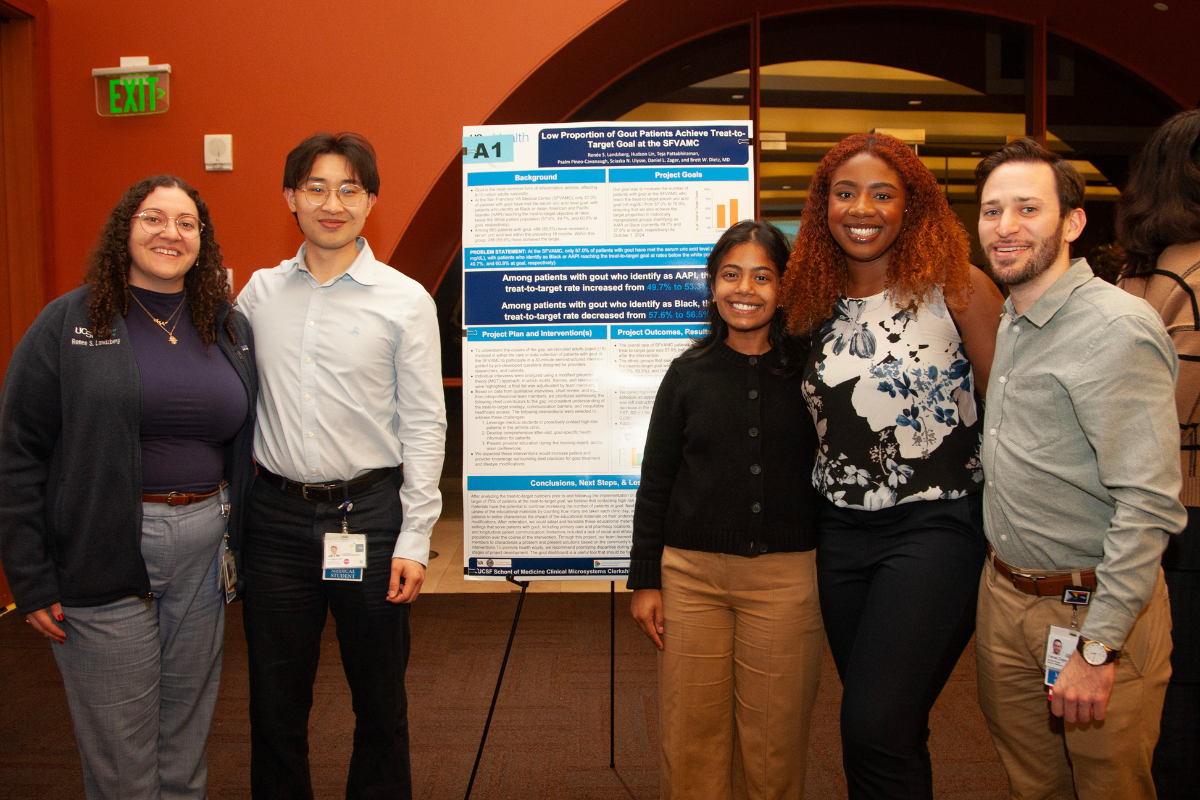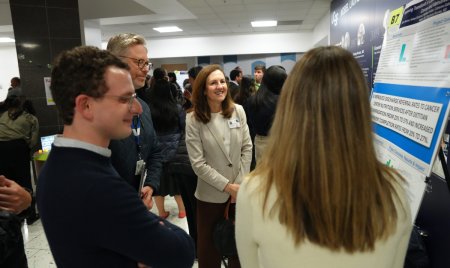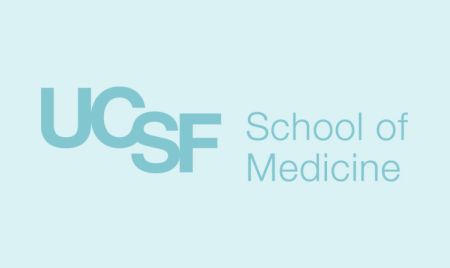The Power of Teamwork in Health Systems Improvement: 2024 UCSF School of Medicine Health Systems Improvement Symposium
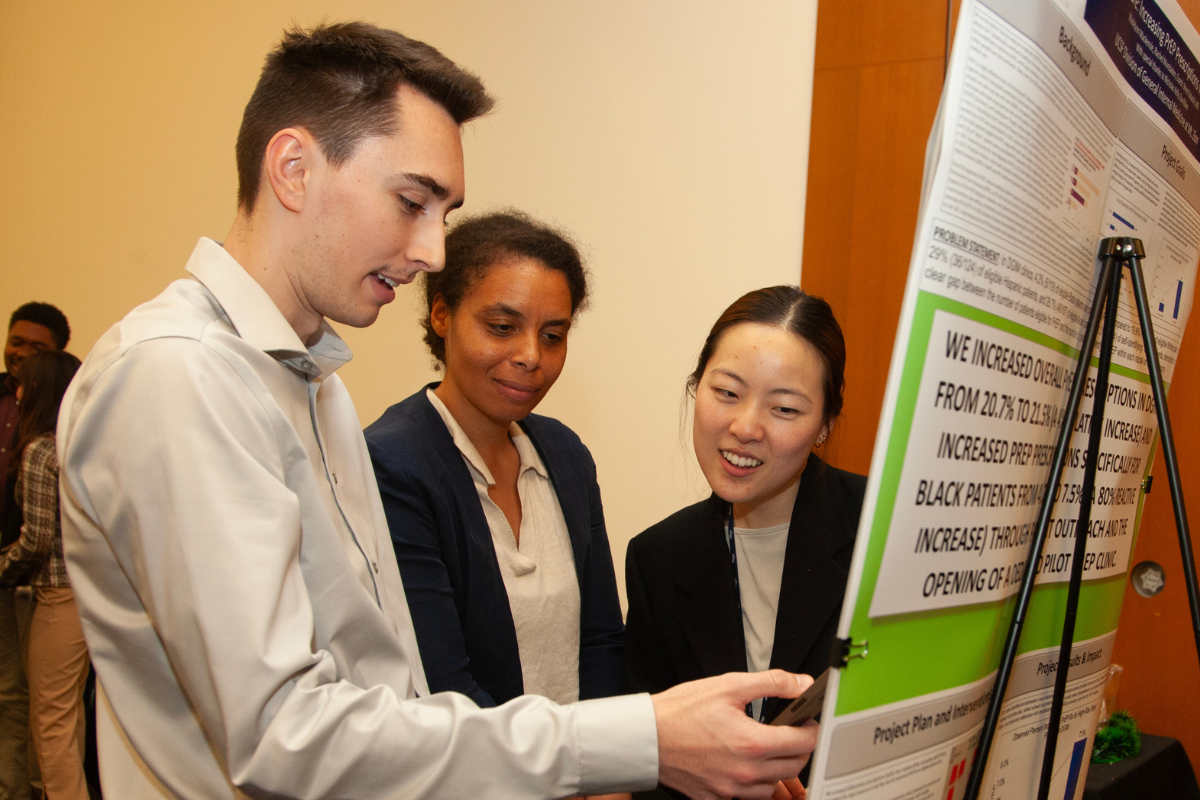
On December 5th, students and faculty filled the Mission Bay Conference Center for the eighth annual UCSF School of Medicine Clinical Microsystems Clerkship Health Systems Improvement Symposium. The event celebrated the efforts of 163 medical students who completed a year and a half of work on quality improvement at UCSF-affiliated clinical sites as part of the Clinical Microsystems Clerkship (CMC) component of the Foundations 1 curriculum. Thirty teams of students, each led by a faculty coach, tackled projects aimed at enhancing patient care across UCSF Health sites, Zuckerberg San Francisco General Hospital (ZSFG), and the San Francisco Veterans Affairs Health Care System (SFVAHCS).
The evening opened with remarks from Vice Dean of Education Karen Hauer, MD, PhD, who acknowledged the students’ hard work, saying, “The work you’ve done matters. Thank you for your dedication, hard work, and commitment to the advancement of medicine.” School of Medicine Dean, Talmadge E. King Jr., MD, echoed these sentiments, expressing optimism about the students’ impact on UCSF’s future, saying, “Thank you for all you do to make UCSF the place it is. We always want to continue to be better. I have a lot of faith in you.”
CMC Health Systems Improvement Faculty Co-Directors Lei Choi, MD, MPH, FACP and Catherine Lau, MD, SFHM, served as the evening’s organizers and emcees. They introduced the first of three highlighted projects, presented by students Nicholas Correia, Tiffany Husman, Nwamaka Ijeh, Neal Mukherjee, Palveen Sekhon, and Alessandra Veinbachs, under the guidance of faculty coach Nancy Choi, MD. Their project, Increasing the Rate of Translated Discharge Instructions for Patients with Limited English Proficiency (LEP), aimed to address language barriers in patient care. Through an educational campaign promoting UCSF’s translation services and building reminders about translation options into the existing discharge process, the team raised the rate of translated discharge instructions for LEP patients from 0–3% to over 20%.
The second project, conducted at ZSFG by medical students Reta Behnam, Shiv Gupta, Angela Kim, Tomiyuri Lewis, Gabriel Salazar, and Daniel Zhang, under the guidance of faculty coach Heather Briscoe, MD, focused on improving the documentation of multidisciplinary CPS timeouts (MCTs) in the electronic medical record (EMR). Their initiative, Improving Transparency and Accountability of a Multidisciplinary Tool Used in the Setting of Potential Child Protective Services (CPS) Referral, introduced a new dot phrase—a pre-built text block for patient notes—resulting in a 3.77-fold increase in standardized MCT documentation, now exceeding 90%.
The third project, led by medical students Korena Boyd, Caitlin Hendricks, Andrew Pham, Sydni Sheff, and Sam Sheridan with faculty coach Josué Zapata, MD, MBA, aimed to reduce patient length of stay on the SFVA Medicine Wards. Their efforts, Improving Length of Stay on the SFVA Medicine Wards, included streamlining the Medi-Cal review process, increasing admissions to the SFVA’s in-house skilled nursing facility, and creating a scoring system to identify patients at risk of extended stays. These measures reduced the percentage of patients with stays over eight days by more than 10%. This outstanding work earned the team the Employees’ Choice Award at the SFVAHCS Systems Improvement 10th Annual Process Improvement Fair.
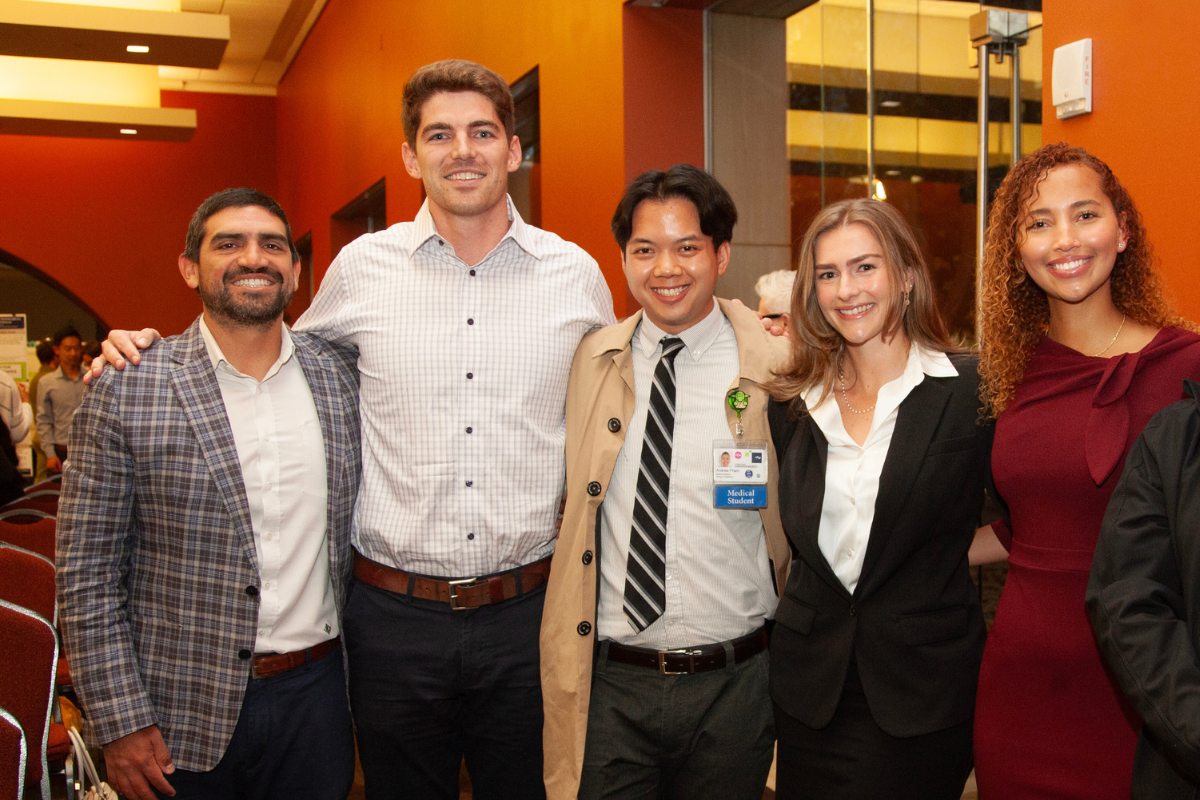
These projects demonstrated to students that, regardless of their stage in medical training, they can drive meaningful improvements in clinical care. Reflecting on his team’s work, Benjamin Hyams, MS2, said, “The CMC experience opened my eyes to how low-barrier interventions can lead to lasting change.” Teja Pattabhiraman, MS2, echoed these sentiments, saying, “The CMC experience highlighted how we can leverage clinical experiences to improve the quality of care, which is something we can extend throughout our careers.”
The symposium’s poster sessions revealed common themes across the 30 projects, including enhancing patient experience, quality and safety, care access, and fostering interprofessional collaboration. Each project involved teamwork with an interprofessional group to develop innovative solutions. Summing up the value of collaboration, Daniel Luis Zager, MS2, remarked, “Through the power of teamwork, we can achieve things together that are beyond what we can achieve on our own”
